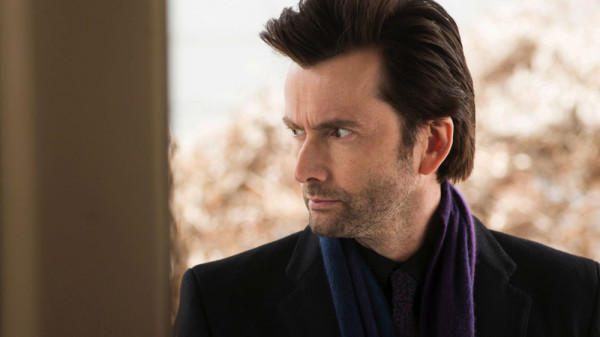Off the back of three terrific, exciting episodes, Jessica Jones slows down a little for a final set of episodes that generally bring things to a satisfying conclusion.
Most Netflix shows with a thirteen episode run tend to lack enough story to fill all 13, leading to a fair bit of padding in the later stages of the season. It happened with Daredevil, and to some extent, there’s more padding than usual with Jessica Jones in the final stretch. A lot of this stems from the character of Simpson, who graduates from supporting ally to an outright villain in episode eleven, ‘AKA I’ve Got the Blues’.
Will’s story is well told, and it serves an important purpose in subverting the tropes of the traditional male hero solving everything while culminating in exciting fashion with an agreeably brutal fight in Jessica’s apartment.
Despite this, it’s all told at the wrong time – late on in the season, it lessens the focus on Kilgrave, meaning that the show spends more time in a late-game episode with an arc that only really serves to set up a second season with Will as Marvel villain Nuke than with the central villain of this season. It’s an unfortunate matter of timing, but unfortunately Will’s story only gets in the way of the Kilgrave conflict.

Things do pick up once more with the penultimate episode, ‘AKA Take a Bloody Number’. The return of Luke Cage really highlights the importance of the character to Jessica, showing his compassion and sympathy in a way that makes it feel realistic that Jessica would actually fall for him.
It’s the final twist, though, that really pulls the rug from underneath our feet, re-contextualising all of Luke’s romantic dialogues as a twisted attempt by Kilgrave to prove a point to Jessica and cleverly getting us to retroactively doubt the trustworthiness of Luke’s actions throughout the season.
The brawl between Luke and Jessica is, without a doubt the strongest fight this season has served up – a brutal, emotionally charged fight that combines the spectacle of seeing two super-powered people pull each other through walls and throw car doors at each other with genuine, character-focused substance, leading to a devastating conclusion.

The season finale, ‘AKA Smile’, is far from a perfect instalment, but it just about sticks the landing. There’s a fun mini-crossover with Daredevil as Rosario Dawson’s Claire Temple shows up, but the finale pivots around the final confrontation between Jessica and Kilgrave.
It’s easy to feel a sense of disappointment that this entertaining villain is killed off, but Jessica Jones manages to bring events to the point where Kilgrave’s death feels necessary for the story – Jessica had finally outsmarted him, and there was very little else that could be done with the character.
The show will miss him, but Jessica Jones puts itself in a very intriguing position by getting Jessica to perform the action she’d spent half the season trying to avoid, leaving plenty of potential for season two to explore.
There’s storytelling flaws to iron out, and it’s hard not to admit that the season would have been stronger if it had been a couple of episodes shorter with the flab cut out, but Jessica Jones was another dynamic entry into Marvel’s increasingly impressive TV pantheon, highlighting the fact that some of Marvel’s most exciting stories are being told on the small screen.
More of this, please.
![]()
All 13 episodes are available to watch on Netflix now.
> Follow Louis Rabinowitz on Twitter.
What did you think of Marvel’s Jessica Jones? Let us know below…

